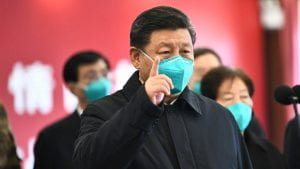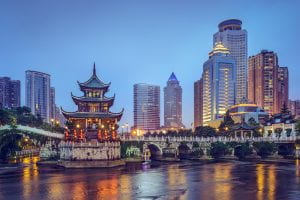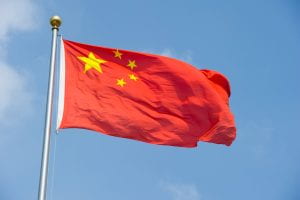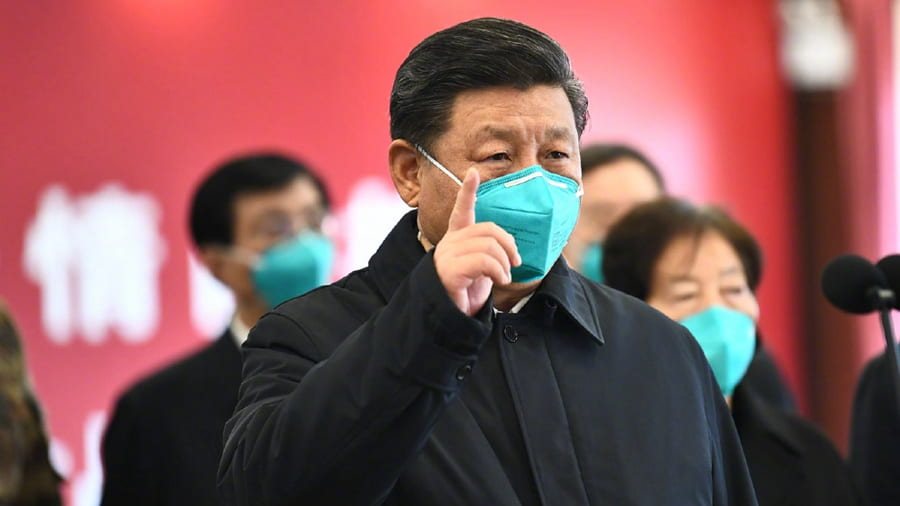
Since the pandemic began, you might have seen multiple different snippets of Chinese citizens in their homes under complete lockdown. You might have even seen drones patrolling the streets and citizens shouting lamentations out of their window.
What you may not have known is that all of these scenarios mentioned above are a direct result of China’s COVID protocols. Currently, China is imposing a “zero-COVID” policy on all of its citizens. However, as President Xi Jinping was just re-elected for a third five-year term, we can assume that the policy will not be going anywhere anytime soon.
The “zero-COVID” Policy: Prevention

Let us now evaluate what this so-called “zero-COVID” policy is and what it entails. Supposedly, China “recognizes domestic outbreaks are inevitable, and its policies are not geared towards having zero cases at all times but instead, are about “dynamically” taking actions when cases surface.”
China’s policy can be split into two distinct features: prevention and containment. In the case of prevention, China ensures PCR tests (which are fast and highly accurate ways to diagnose COVID) are readily available for anyone at any given time. The normality and presence of tests has in turn caused certain businesses and buildings to require individuals to show proof of being COVID negative to enter these public spaces. However inconvenient this might be to those who are not tested, this notion has definitely kept cases low—after all, if functioning in life requires having a negative test, why would one risk getting sick? One surely would not want to risk getting sick since it would mean they would be practically unable to enter any public places. Hence, prevention of COVID prevails in China.
The “zero-COVID” Policy: Containment

Prevention of COVID seems to be rather successful in China. However, the other part of China’s zero-COVID policy seems to be the one that sparks controversy and frequently makes its way into mainstream media: containment.
Allegedly, China’s “[control tactics] aimed at swiftly cutting off transmission chains to forestall outbreaks, involve quarantining cases at government-supervised facilities and locking down buildings, communities or even entire cities.”
Picture this: you wake up, get dressed, and are having your typical morning routine. Perhaps you might be feasting on some waffles or eggs as you prepare for your day. In any case, you eat your breakfast, and then head out to work. You get to your office around 10 minutes early, anticipating it will be a good day.
About halfway through your work day, you receive word that you will not be heading home to your family that night. Someone in that building (a coworker of yours), tested positive for COVID, and the city decided to place your entire office building on lockdown.
Swiftly, within hours, government officials are shoving mattress and bed materials through the window. Additionally, food supplies are en route to the office. The basic necessities of human survival are all now being prepared to be delivered to your office, which, for the next couple of days, will be your home.
This scenario is one that many people living in China have experienced. Starting your day normally to simply head to work and be told that you would not be allowed to go back home for a couple of days is a harsh reality in China.
This ability for the government to impose this upon its citizens is all, as one would expect, due to China’s commitment to its zero-COVID policy.
However, in addition to putting entire office buildings under lockdown for days, China is also able to put entire cities on lockdown. The population of the cities which fall victim to China’s harsh quarantine policies matters not—Shanghai, China’s largest city, was even placed on lockdown. Other cities that have been placed on lockdown include Xian, Chengdu, Tianjin, Shenzhen, and regions such as Xinjiang, Tibet and Jilin.
When a city is placed on lockdown, its citizens typically get little notice. The lockdowns, unsurprisingly, are complete lockdowns—there are no exceptions. Everything closes. Everyone is required to stay inside, no matter what. China ensures complete and total lockdown.
The government guards and watches over the streets 24/7 and ensures that no one roams the streets without permission. On top of that, drones often fly about, blaring messages out loud to remind everyone of the lockdown procedures.
When China decides to place a city under lockdown, eeriness overflows the streets. The scene is reminiscent of ghost towns and movies of towns left abandoned due to some unforeseeable incident.
The Impacts and Implications

These efforts on China’s end, despite how draconian they might appear, have definitely accomplished China’s goals. Globally, China is practically one of the least impacted nations by COVID—despite the fact the virus allegedly originated from China in the first place.
According to OurWorldInData, China’s all-time COVID case count is about 1 million. The United States’s total is about 97 million. Additionally, in China, only about 5,000 have died from complications with COVID, while over a million people have died in the United States.
Naturally, this presents an ethical dilemma—how should a government go about protecting the lives of its citizens from an illness? Should the government take China’s route of practically removing one’s agency over their own life in order to keep cases and deaths down, or should a government take the route of the USA where COVID mandates are less harsh or non-existent?
The low incidence of COVID outbreaks might make it seem as if China is doing the correct thing—governments should step in and enforce lockdowns onto people. However, while this surely will indeed keep cases at a low count, it will also imply other things—most importantly, the implication that the government ultimately knows what is best for its people and has the final say in how people live their lives. If a government can step in randomly and deny its citizens the free will to leave an office building, what else can it do in other situations? This notion of a government exuding agency over its people in times when it deems best surely is not a notion that is only demonstrated in situations of COVID—it is a notion that is bound to resurface in other parts of one’s life.
What the correct and best thing for a government to do, as it relates to infection control, is not as clear cut as one might think. It is certainly problematic for a government to have total authority over its people (which thereby would give it the power to strictly enforce COVID policies). At the same time, this has been an effective strategy in keeping cases low. On the other hand, the United States has been uncertain as to how to implement COVID policies. The USA is not used to enforcing policies in situations that have never occurred before, such as the COVID pandemic. Hopefully, if there is one positive thing we could gain from the entire pandemic, it is that if a pandemic were to ever break out again, due to COVID, we are better equipped to deal with it.


2 thoughts on “China’s Zero-COVID Policy”
Comments are closed.